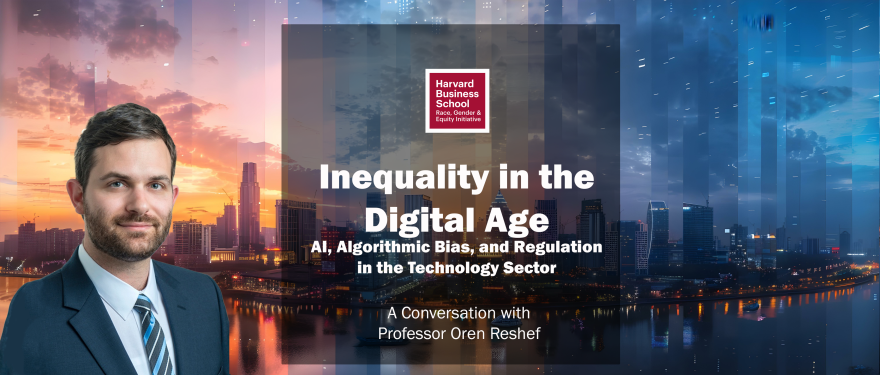Race, Gender and Equity at Work
Race, Gender and Equity at Work
How does hope become a practice? As our exploration of hope traversed through overtures of its possibilities to an excavation of its pitfalls, we arrived several times at a theory of substantive hope, a hope that moves us through difficult emotions and leads us to take the next step forward. A practicable hope must be accompanied by action, and it must have an element of pragmatism that grounds it in reality. [...]
Professor Mahzarin Banaji is a Professor of Psychology at Harvard University, studying implicit beliefs, values, and social groups. Known for coining the term “implicit bias” along with colleagues, her insights on the topic of AI offered depth to our interview series. In conversation, she discusses how a digital archive of language can help us track attitudes across time periods, and how we can use algorithmic data to reflect on our own beliefs. Additionally, she offers a word of caution for developers of algorithms and AI innovators to exercise their conscience while creating these new pathways. [...]
In this feature interview, Professor Daron Acemoglu discusses his latest book, Power and Progress, and explores parallels between historical technological revolutions and today’s AI boom. He highlights how past innovations, like the windmill and cotton gin, have alternately driven prosperity and exacerbated inequality, suggesting AI could follow similar patterns. The conversation touches on the risks AI poses to workers, emphasizing that its impact depends on human choices rather than technological determinism. He raises questions about the market's ability to prevent AI from worsening inequality, pointing out the significant influence of big tech companies, advocating for a course correction to harness AI's potential positively. Despite some optimism from labor unions and open discussions about regulation, he foresees potential disappointments due to unrealistic expectations and rapid implementation of AI. The advice is clear: business leaders must view workers as valuable resources rather than costs. [...]
In this interview, Professor Kalinda Ukanwa illuminates ways to screen for bias in consumer-driven algorithms, the importance of trust between business entities and consumers, and why it pays to correct biased algorithms, rather than leave them unchecked. Drawing an analogy to the automobile's evolution, she highlights the need for safety measures in AI development, showing that while biased algorithms might be profitable in the short term, they are detrimental in the long term, affecting consumer trust and company demand. She advocates for third-party oversight to align consumer and firm perceptions of fairness, referencing a case study on the Apple credit card controversy to illustrate how unfounded, biased perceptions can arise. She calls for interdisciplinary research to explore AI's broader implications and urged business leaders to thoughtfully manage AI's potential and risks, ensuring responsible integration of this new transformative technology. [...]
Professor Oren Reshef studies digital platforms and social inequality at Washington University in St. Louis’s Olin Business School. In this discussion, Professor Reshef reveals his findings on consumer demand for minority-owned businesses, and how business leaders can celebrate minority leadership for better results and consumer relationships. [...]
Load More Loading...





